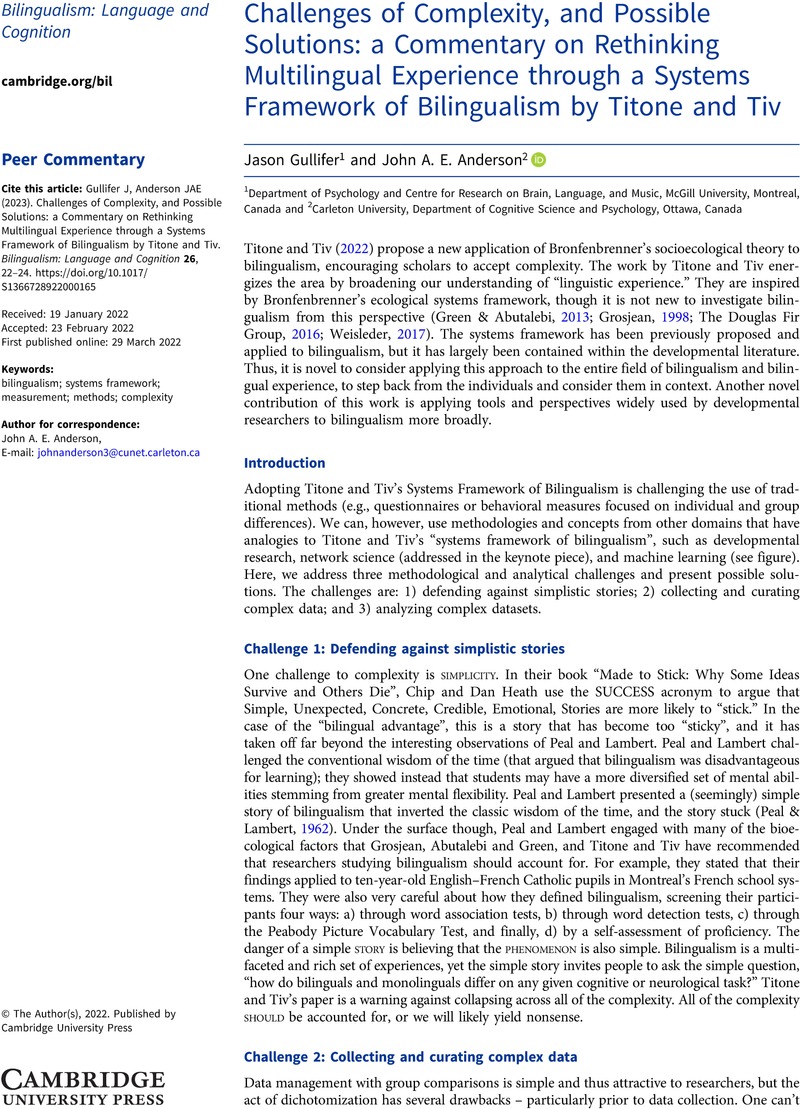Crossref Citations
This article has been cited by the following publications. This list is generated based on data provided by Crossref.
Anderson, John A.E.
and
Grundy, John G.
2023.
Understanding Language and Cognition through Bilingualism.
Vol. 64,
Issue. ,
p.
374.
Luk, Gigi
and
Grundy, John G.
2023.
The Importance of Recognizing Social Contexts in Research on Bilingualism.
Bilingualism: Language and Cognition,
Vol. 26,
Issue. 1,
p.
25.







Target article
Rethinking multilingual experience through a Systems Framework of Bilingualism
Related commentaries (7)
Bilingual language cognition as a complex adaptive system
Challenges of Complexity, and Possible Solutions: a Commentary on Rethinking Multilingual Experience through a Systems Framework of Bilingualism by Titone and Tiv
Exploring nuance in both experience and adaptation: Commentary on Titone and Tiv (2022)
How to frame bilingualism in context: Putting people and places in mind
Sociocultural dimensions of early dual language learning
The Importance of Recognizing Social Contexts in Research on Bilingualism
The systems framework dispels causal illusions and organizes multi-causal models
Author response
Rethinking Multilingual Experience through a Systems Framework of Bilingualism: Response to Commentaries